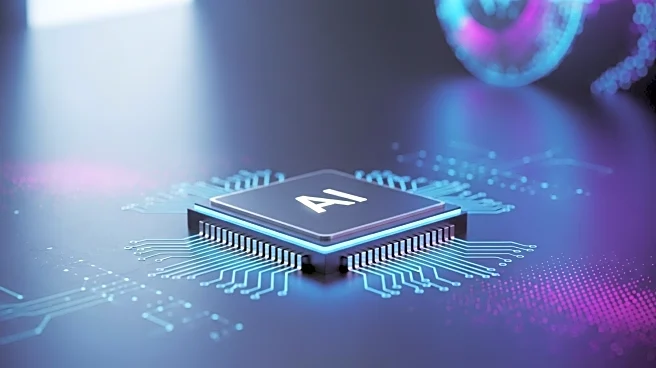What's Happening?
OpenAI has signed a deal with Broadcom to design and manufacture its own machine learning processors, according to a report by The Financial Times. This collaboration is part of a long-term strategy to move away from reliance on Nvidia's GPUs, which are currently used for AI model training and inference. Broadcom's CEO, Hock Tan, announced a $10 billion AI system order from a new customer, indicating significant revenue growth expected in 2026. This development aligns with OpenAI's efforts to cut costs and enhance its technological infrastructure.
Why It's Important?
The partnership between OpenAI and Broadcom is crucial as it highlights a strategic shift in the AI industry towards custom hardware solutions. By developing its own AI processors, OpenAI aims to reduce costs associated with expensive Nvidia chips, which have been a major expenditure for AI companies. This move could lead to increased competition in the semiconductor market, potentially driving innovation and cost reductions. The transition may also impact Nvidia's market dominance, as more companies explore alternative solutions for AI processing.
What's Next?
OpenAI's transition to using Broadcom's AI processors will require significant adjustments to its software stack, which is currently optimized for Nvidia hardware. This process may take time, but successful integration could enhance OpenAI's operational efficiency and set a new standard for AI technology development. Industry observers will likely watch for further announcements regarding the implementation timeline and potential impacts on AI processing capabilities.








